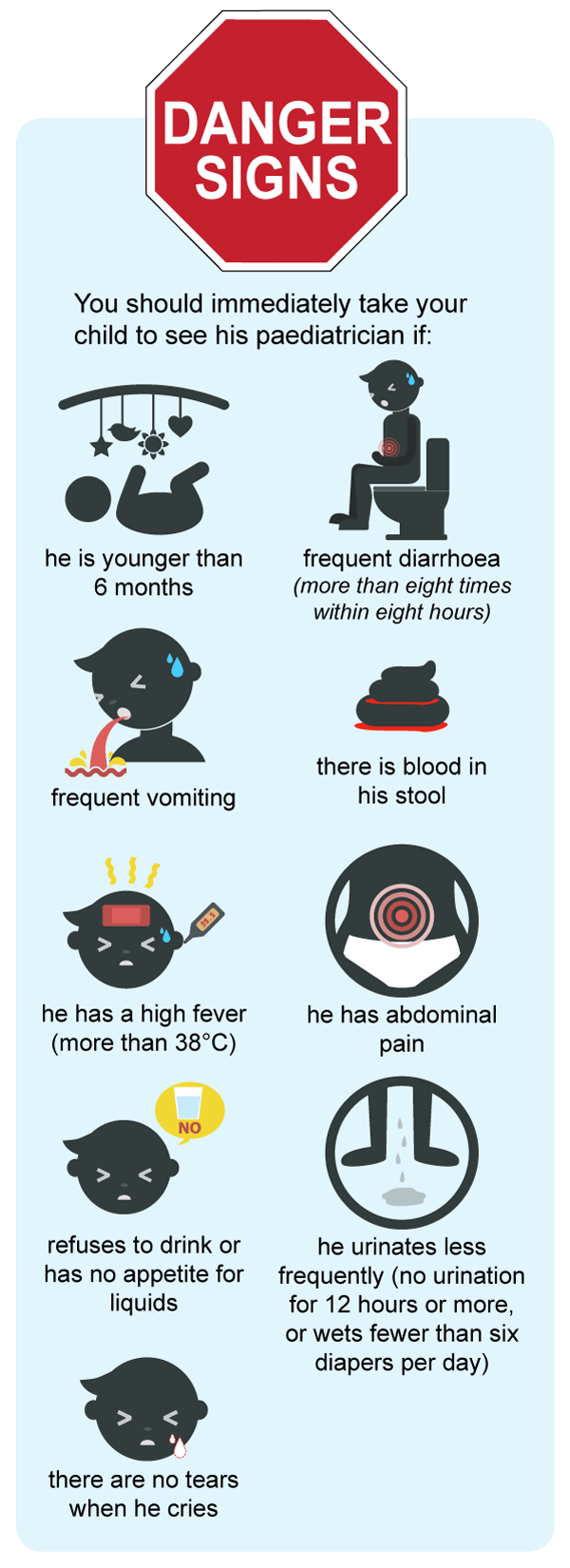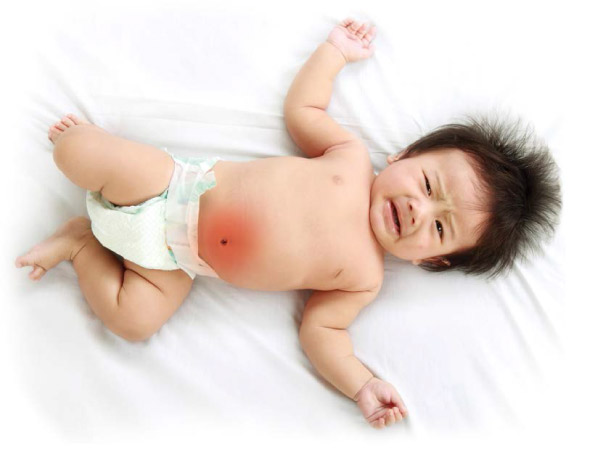Younger children can and often do suffer from mild diarrhoea from time to time. Should your child have mild diarrhoea, keep an eye on him. Mild diarrhoea can last between three to six days and he may have loose stools for several days after his diarrhoea clears up. So long as he continues to act normally and consumes fluids and foods in adequate quantities, then there is no cause for concern over the loose stools. However, diarrhoea can be a life-threatening condition for infants especially if it is accompanied by fever or blood stained stools.
Let him continue eating a normal diet during the episode of mild diarrhoea. If he is still being breastfed, then continue doing so. Do discuss it with your baby’s paediatrician if he seems bloated or gassy after eating, to see if he needs a temporary change in diet.
Spotting dehydration
Signs include decrease in urination (e.g. dry diapers for eight or more hours or not urinating for 12 hours or more), crying with no tears, high fever, dry mouth, weight loss, extreme thirst, listlessness, too weak to walk, and sunken eyes.
If your child has moderate diarrhoea, you can easily care for him from home. If he is still being breastfed, continue to do so. Just be sure to keep a close eye on him at all times, ensure he takes sufficient fluids and any medication he has been prescribed. You should also follow any advice his paediatrician gives you.
Determining the severity
So how will you know whether your child is suffering from a mild case of diarrhoea, or a severe bout? Well, if he has mild diarrhoea, he will pass a few diarrhoea stools a day. If he has moderate diarrhoea, he will pass more (less than 10) diarrhoea stools a day. If he has severe diarrhoea, he will pass more than 10 diarrhoea stools a day and should be taken to see his paediatrician immediately.
Dos
- Give him plenty of fluids. Water and/or vegetable or chicken broth (without the fat) is best.
- Feed him as normally as possible. Alternatively, frequently feed him small amounts of solids.
- Keep a look-out for dehydration.
- Give him suitable anti-diarrhoeal medications for children but only as advised by your paediatrician.
- Maintain hygiene – always wash your hands after changing his diapers and after he goes to the toilet. Failure to do so can prolong and possibly worsen the condition.
Don’ts
- Do not make your own oral rehydration solution (ORS) unless instructed to do so by your child’s paediatrician.
- Do not substitute ORS with fruit juices or sugary drinks such as carbonated drinks when treating diarrhoea – they contain less than the ideal content and concentration of electrolytes.
- Do not stop your child from eating if he is hungry.
- Do not feed him oily, fatty, or spicy foods.







Comments